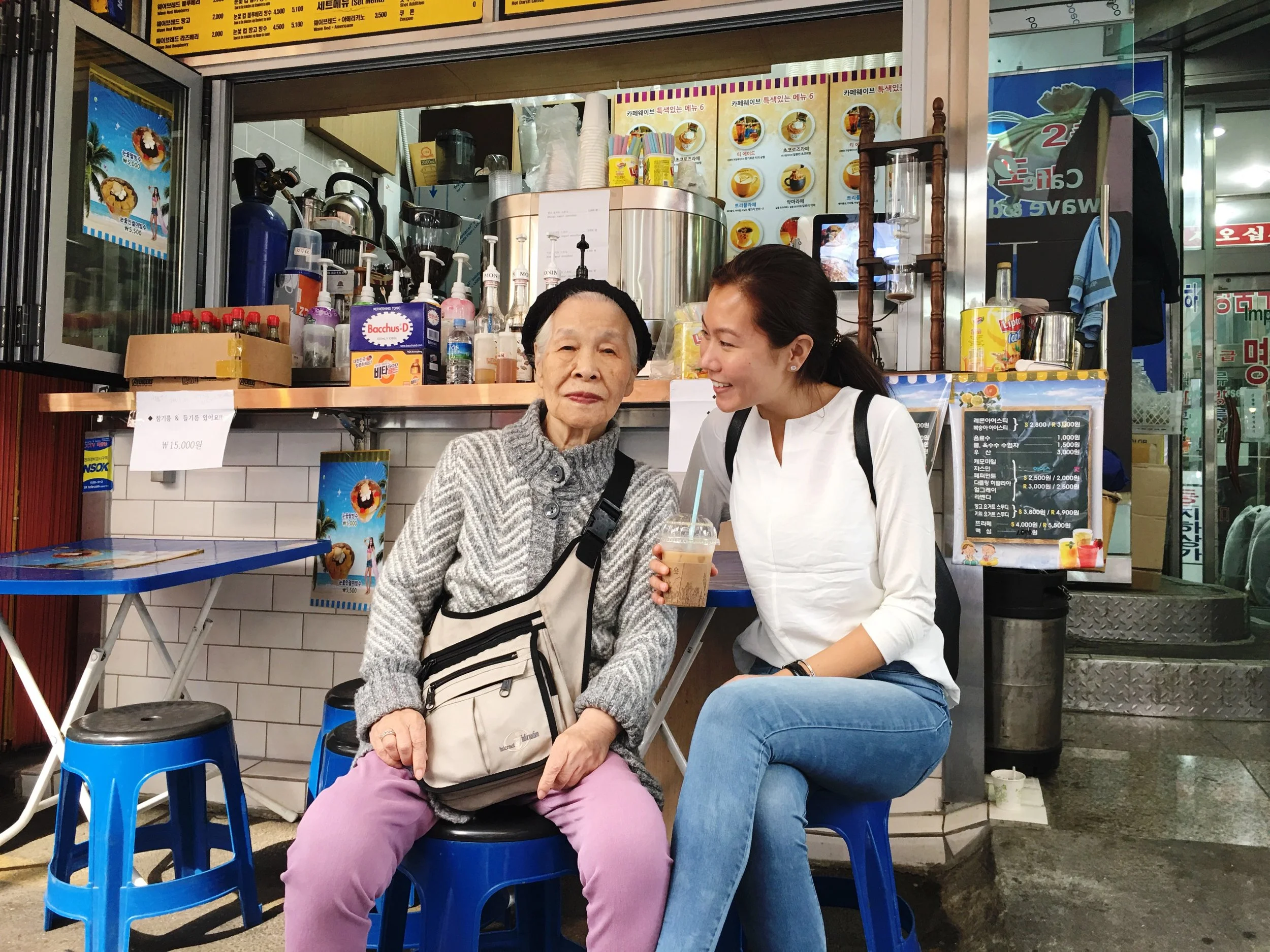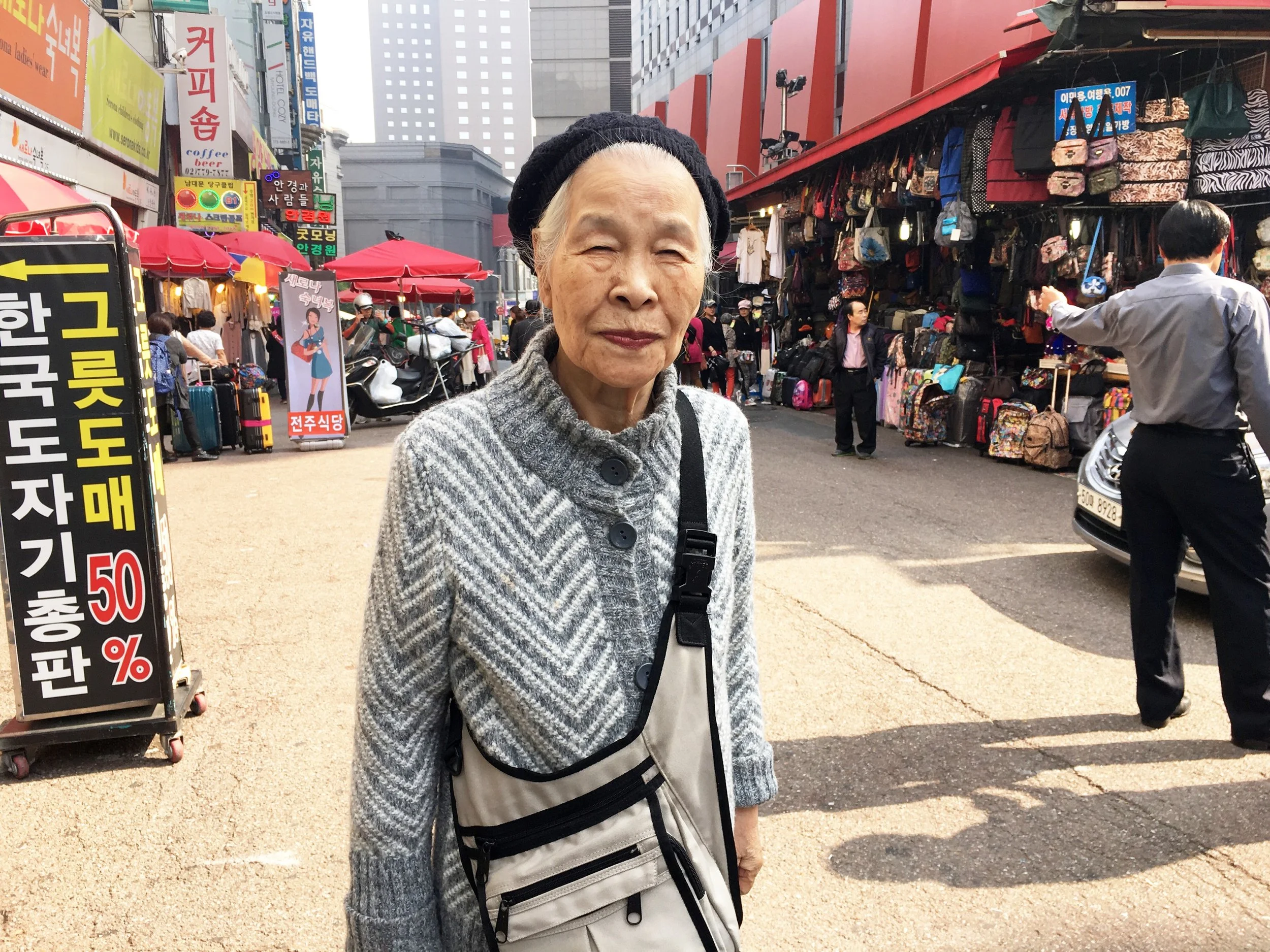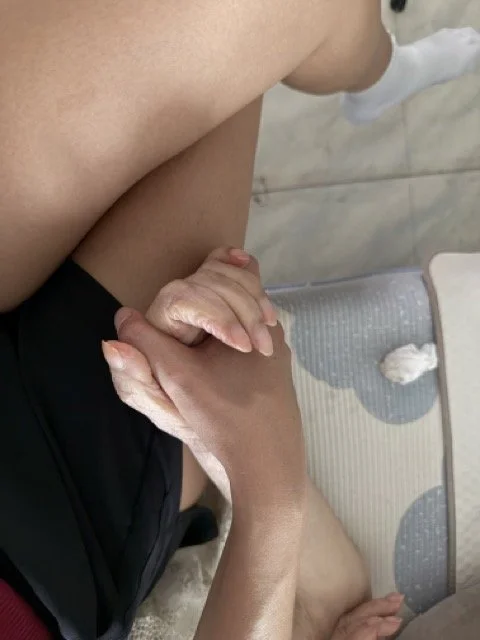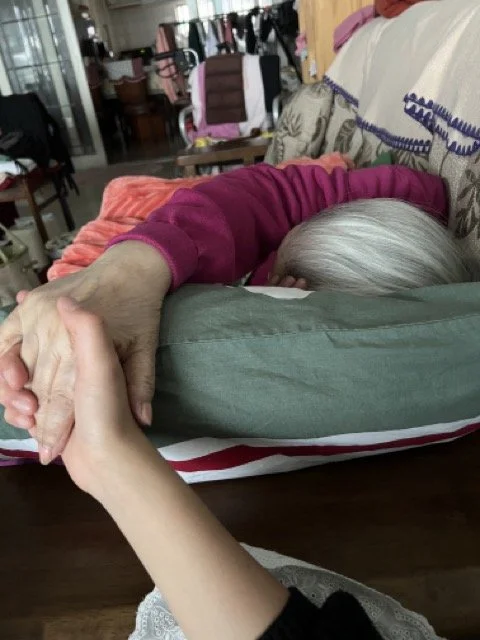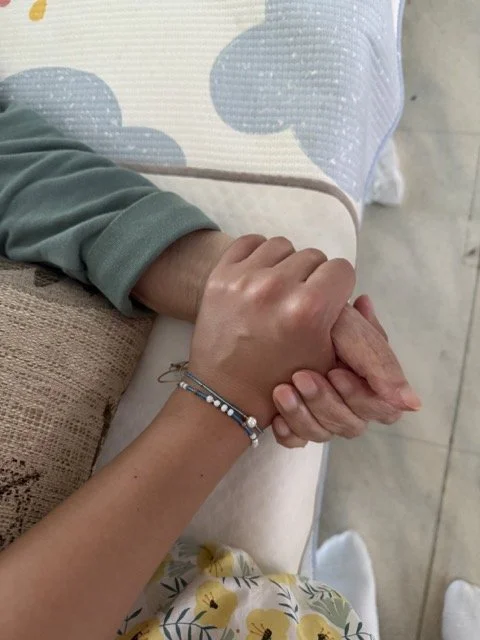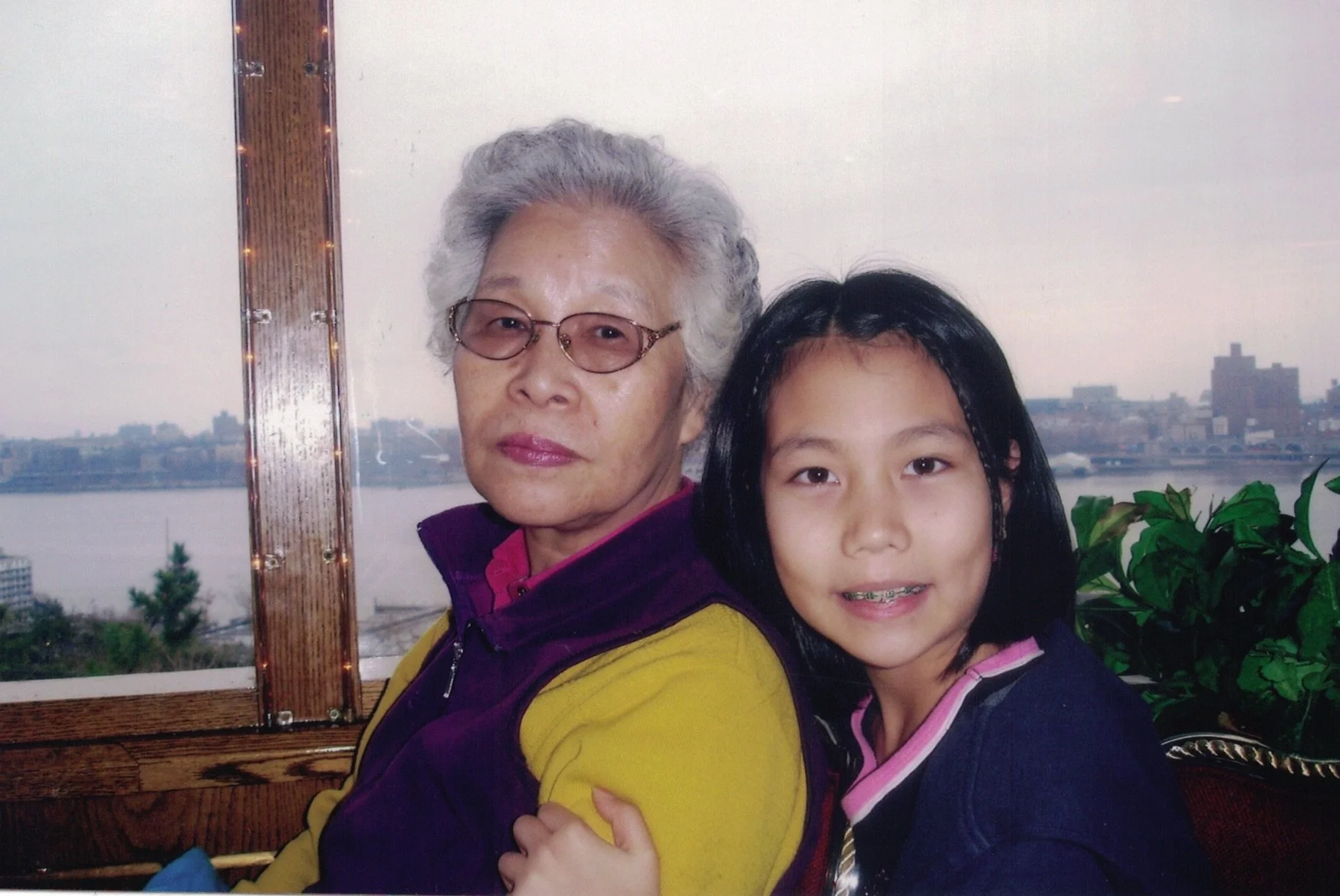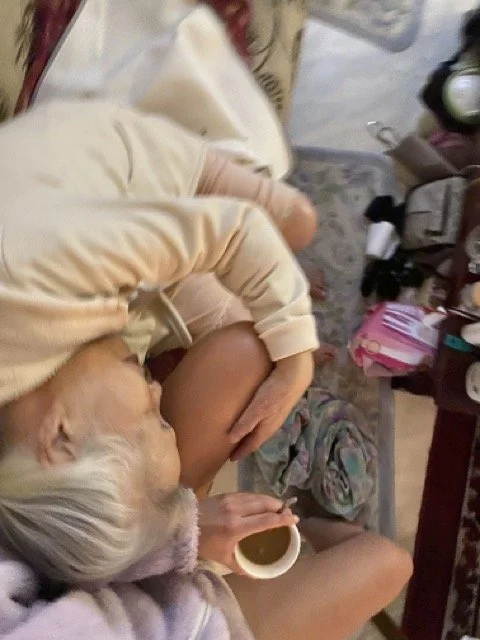Thank You & I Love You & I’m Sorry
On Wednesday night in Seoul, Hami passed.
It’s said she went peacefully.
And with her sons at her side.
It was same day morning New York time and I was at the Antler office and sat at my desk when I got the news. I was running through my agenda points for my upcoming 12pm 1:1 meeting with my manager when my phone lit up with a text from Appa: “Hami passed away tonight. 11:45pm. In the hospital.”
He didn’t call or send any other details. I read that text like I was reading a food delivery update and (strangely) immediately compartmentalized it, thinking “ok, I can still do this meeting and call Appa after.” And I knew I could. Work doesn’t need to see this vulnerable part of me.
But it didn’t feel right. It felt dishonest to myself.
So I got up, grabbed my phone, and found a private room in the office to make a call.
My manager texted that she was running late.
“Perfect,” I thought and facetimed my friend S who picked up immediately and happy to see me.
“Wei, my grandma passed,” I said out loud which forced my brain to process it.
Phone lost signal, stupid office wifi that needs to be upgraded. I cut the wifi on my phone and reconnected with 5G and told her everything–
Hami’s been in the hospital for a few days.
I just got the news from my dad.
I don’t know if I will fly over yet.
They’re preparing the wake already and she’ll be buried next to my grandpa.
I mostly told her how I couldn’t even believe it.
S mentioned that she’s working from home and said to come over. I didn’t know if I wanted to be alone or with company.
I ran the movie in my mind of my choices–
I could spend the day alone. I’d call an Uber and go home and cry on the floor. I knew the news would hit me hard once processed.
Another part of me ran the movie script of being open to receiving support from friends during this difficult and hyper-sensitive time. I’m so conditioned to not wanting to be a heavy burden on people so it took a conscious effort to decide to ask and receive support.
I hung up with S and later texted her that I’d come over.
My manager joined me in the small private space. I was already crying.
But by the time I locked eye contact with her, I lost it. The news had completely collapsed on me like a heavy wave.
Hami had passed.
I felt I failed as a granddaughter, because I should’ve and COULD’VE loved her in more abundance. Given her more love and warmth and beauty and softness.
Why did I reserve love towards her?
Each summer when I leave Seoul, I head out of the apartment rolling my 3 massive suitcases of new clothes and skincare. I clean out my bedroom and say bye to family.
Hami is the final person I say bye to.
Her setup is mainly on a sofa bed that my uncle made for her in the living room so she didn’t have to be tucked away in one of the bedrooms all day, this way she could lay down in the open, sun-drenched space with plants and feel more of the action happening around the apartment— my uncle cooking or getting ready for work, me walking in with Lotte groceries, also waking up at 2pm after working through the KST nights (EST daytimes).
In our final goodbyes, I hold her close, massaging her skinny shoulders and brushing her white hair. I tell her I’m leaving back to the US (her memory is fully intact but I still remind her because it’d break my heart to hear her wondering where I am). I say please stay healthy, go outside more, and lastly in Korean, I say:
내년에 또 뵙겠습니다, 할머니. I’ll see you next year, Hami
We hug and she holds my hands to her soft wrinkled cheeks and tells me to eat well, which is the universal Korean translation of “I love you.”
I try hard not to cry but I cry anyway.
Then muster up the strength to stand up and head out the apartment door.
I always turn around to say bye again, and see her waving her delicate hand from the sofa bed, telling me to “go well”
God, I miss her so much it hurts.
What I really should have done each summer was a proper full bow. Forehead to floor. Slow and intentional. We do this to show utmost respect. I regret not doing that this past summer.
Why didn’t I just do that?
We had such a casual relationship but she’s still a woman of tradition and I should have done it.
In my entire Korean side of the family, Hami was the only person who I was physically affection with. We held hands often. I would snuggle at her side in these last few summers when she laid down more and more.
Our relationship was an evolution to where it is now
Hami and me weren’t always close.
Growing up, I was outside all the time playing manhunt or woodchips in the park until dark and I’d eventually turn in around dinnertime or later at night. If Appa was upset, Hami would stand outside the house to catch me on my way in and warn me that he was angry so I could at least brace myself.
The reason I didn’t feel close to her is because she never protected me from Appa. Instead, I’d head in the house fearfully and face him head on. Every. Time. So for a while, I grew disappointed, often wondering how she could have raised a son like my dad who was so cold and ruthless to my sister and me?
In the last couple of years, I learned about the weight she carried.
My grandma didn’t talk about herself a lot.
I’d learn that she had an abnormally tremendously massive capacity to withhold pain.
The brutal stories I learned about her were from my uncle and my sister.
Stories about how my grandpa was abusive towards Hami, hitting her, breaking her compacts and lipsticks, calling her ugly, and altogether leaving her without money to fend for herself with her young son (my dad) in Itaewon. She’d later move back in with her parents to get her life back together and find work. Years later, she’d get back with my grandpa and they have 2 more sons, hence the big gap between the 3 brothers. At that time in Korea, domestic abuse was common though of course, still unacceptable.
When asked about the happiest days of her life, she says it was when each of her sons were born.
I love hearing that because I can’t wait to become a mother too and experience the unmatched euphoria of seeing a healthy child come into this life.
What Hami gave me was femininity and stability
I learned about makeup through my grandma. She drew on her eyebrows with pencil and applied a pigmented lipstick using a handheld mirror. She would use this compact that had pearls inside and smelled effervescent. When she came to the US, she cooked Korean stews, wore fur coats, and made my sister and I change clothes when we went outside. She disapproved of wearing sweats and hair buns.
I lived my entire adult life knowing that I had a soft place to land in Seoul.
I leveraged this twice - during the pandemic when I was lost and then again a few years ago when I was navigating my next role. Her apartment was an open door to us and it was home to me. I’d always have a bed and refrigerator of Korean food and snacks if I needed to cocoon away from the world. How incredibly privileged and lucky I am.
She continues to live on through us
“The thing about parents is that you’re happy to see your children grow and continue on,” my elder landlord said to me this week when I shared the news.
When Hami sat at the dinner table, she always served others before herself. If there was a main protein dish, she made sure to put plenty on my plate.
When I laid on the sofa to rest even for just 5 minutes, she always grabbed a blanket and cover me to stay warm.
When I sat on hardwood floors, she would scoot a floor cushion underneath me saying the floor was cold and not good for my health.
When my clothes ripped, she sewed them.
She’d look at me softly, endearingly in my eyes and tell me to marry well.
If you ask my friends and colleagues who know me today to describe me, things like “warm” and “nurturing” and “caretaking” would come up.
A lot of my gentleness and feminity came from being around my Hami and I pray that I continue it to my children and grandchildren.
